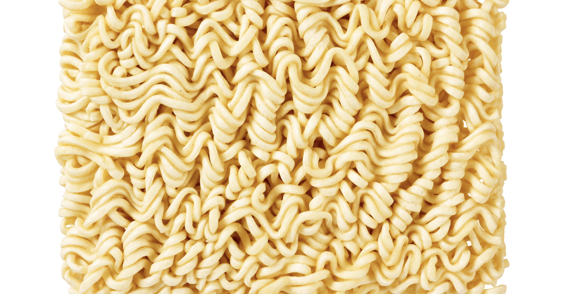
image via – shutterstock.com
Ramen noodles are a real “go-to” for people who want something satisfying, tasty and inexpensive; for instance college students are big consumers of this processed food. Although Ramen noodles come in a non-processed form, it is the processed version that is most popular.
It contains a food additive called Tertiary-butyl hydroquinone (TBHQ), which is commonly used as a preservative for cheap processed foods. TBHQ is a chemical that is derived from petroleum, and is not digestible. Because of the difficulty in digesting this chemical, a small study was performed by Dr. Braden Kuo of Massachusetts General Hospital.
Dr. Kuo is a gastroenterologist who wanted to compare the stomach’s ability to digest Fresh vs Preserved ramen noodles. People who participated in the study swallowed a “smart pill” which contains a tiny camera. The footage you will watch is the stomach trying to break down both the fresh and processed noodles, at different time intervals.
Dr. Kuo, discusses the results and what it may indicate about chemical preservatives staying in the digestive tract for prolonged periods of time. There need to be larger, longitudinal studies done concerning the consumption of this chemical in foods to determine it’s carcinogenic potential.
Studies dosing lab animals with higher doses of TBHQ does indicate the potential for forming cancerous stomach tumors, which on a personal note gives me pause. Whether the amounts found in ramen noodles and many other processed foods is deemed safe, the option to eat fresh food that doesn’t contain this chemical seems like a “no-brainer”.
Let us know what you think after watching the video!
Please SHARE This With Your Family and Friends










